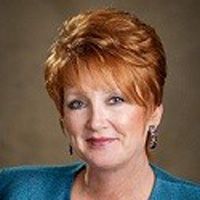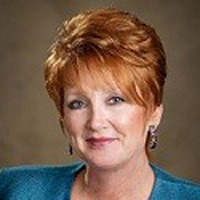Making the Most of Your 401(k) by Using Your Own Adviser
Don’t want to rely on your employer’s investment choices? A self-directed 401(k) account could help you maximize your retirement savings, and working with a professional adviser could give you the personalized attention you need.


Profit and prosper with the best of Kiplinger's advice on investing, taxes, retirement, personal finance and much more. Delivered daily. Enter your email in the box and click Sign Me Up.
You are now subscribed
Your newsletter sign-up was successful
Want to add more newsletters?

Delivered daily
Kiplinger Today
Profit and prosper with the best of Kiplinger's advice on investing, taxes, retirement, personal finance and much more delivered daily. Smart money moves start here.

Sent five days a week
Kiplinger A Step Ahead
Get practical help to make better financial decisions in your everyday life, from spending to savings on top deals.

Delivered daily
Kiplinger Closing Bell
Get today's biggest financial and investing headlines delivered to your inbox every day the U.S. stock market is open.

Sent twice a week
Kiplinger Adviser Intel
Financial pros across the country share best practices and fresh tactics to preserve and grow your wealth.

Delivered weekly
Kiplinger Tax Tips
Trim your federal and state tax bills with practical tax-planning and tax-cutting strategies.

Sent twice a week
Kiplinger Retirement Tips
Your twice-a-week guide to planning and enjoying a financially secure and richly rewarding retirement

Sent bimonthly.
Kiplinger Adviser Angle
Insights for advisers, wealth managers and other financial professionals.

Sent twice a week
Kiplinger Investing Weekly
Your twice-a-week roundup of promising stocks, funds, companies and industries you should consider, ones you should avoid, and why.

Sent weekly for six weeks
Kiplinger Invest for Retirement
Your step-by-step six-part series on how to invest for retirement, from devising a successful strategy to exactly which investments to choose.
We have ended up in a world where employees have to find ways to manage their own funds for retirement, at their own risk. Fortunately, many plans have begun to offer an option called a self-directed brokerage account (SDBA). Some plans even allow you to hire your own adviser to manage your account. And, with the help of a professional adviser, you can put yourself in an ideal position to optimize your retirement plan and meet your overall financial goals.
This self-directed brokerage account (SDBA) option gives you access to a broader universe of investments, such as individual stocks and bonds, exchange-traded funds, and many other mutual fund options — depending on your company’s restrictions. However, while you may want the advantage of those additional investment choices, you may not be comfortable with making all your own decisions, particularly since the investment risk is on you. Fortunately, a professional investment adviser can help you manage your self-directed 401(k) brokerage account.
Is using an adviser for your self-directed 401(k) worth the cost?
What many workers don’t realize is that most are already paying management fees for their company’s 401(k), without getting personalized guidance. Many employer 401(k) plans are managed by registered investment advisers, who act as fiduciaries to the plan and select the investment options for the plan, as a whole. Their obligation is to the plan sponsor — meaning your employer, not you — and they cannot manage or advise individual participants.
From just $107.88 $24.99 for Kiplinger Personal Finance
Become a smarter, better informed investor. Subscribe from just $107.88 $24.99, plus get up to 4 Special Issues

Sign up for Kiplinger’s Free Newsletters
Profit and prosper with the best of expert advice on investing, taxes, retirement, personal finance and more - straight to your e-mail.
Profit and prosper with the best of expert advice - straight to your e-mail.
Using your own personal adviser for a self-directed 401(k) brokerage account may present more value than you think. Given that 401(k) fees can sometimes be rather substantial, according to Business Insider, and given that they can have a significant impact on your account's ultimate value, it is worth considering alternatives.
According to a groundbreaking study by Vanguard, using a professional adviser can possibly add about net 3% annually to the value of your assets, after fees are taken into account. In addition, the adviser can develop a plan for the self-directed account that is part of your overall financial plan to specifically tailor strategies to your personal needs and goals.
Having your own adviser means access to broader advice
Using an adviser for a self-directed 401(k) brokerage account can present more advantages than just increased performance and potentially lower fees. Selecting an adviser who will plan for and manage your overall financial strategy will lead to a coordinated plan that has all the assets working toward all of your goals, not just a single retirement account. For example, many investors have multiple investment accounts in different places, and an adviser can take a comprehensive look at all of them to see how those can fit into the investment mix to achieve the desired outcome. Most are invested without consideration to the whole picture; more of a piecemeal situation. An adviser can also advise on Social Security strategies and how to integrate other retirement income into the complete picture.
An adviser is likely to cost annually between 0.5% and 1% of the assets under management, but that may be less than the average fees you pay on plan investments — which include both the fees an employer’s registered investment adviser would charge and the fees that the mutual funds themselves charge — and the adviser’s fee covers much broader services. The adviser can help find ways to take the most advantage of the 401(k) plan (such as matches by employers) while not losing sight of your near-term goals. As you age and earn more, your goals and objectives will change, and your adviser can help manage these life changes.
Personal attention means a closer eye on your risk tolerance
Investor risk tolerance ranges from aggressive to moderate to conservative, and failing to understand where you fall on that continuum can be disastrous. A professional adviser will almost invariably begin a client relationship with some sort of risk analysis, both to assist them in understanding you and to structure your investments within that risk framework. Many portfolios are concentrated in company stock and not adequately diversified. Additionally, many portfolios are under invested due to the fear of losing money. But, the risk investors are taking is not being able to grow the investments to support their desired retirement lifestyle. An adviser can help diagnose that problem and rework your portfolio.
In the end, your 401(k) can make or break your retirement
Years ago, under the pension system, the employee did not have any responsibility for choosing and managing the investment — they simply received a monthly check after they retired that would last their lifetime. Today, only 15% of private-sector workers have access to such plans, according to the Bureau of Labor Statistics’ March 2020 National Compensation Survey. So now, the burden of retirement funding falls on employees rather than employers.
In the absence of a pension, and with the uncertainty surrounding Social Security's future, it is likely that your 401(k) will be your largest asset and primary savings vehicle. Since this account will essentially determine if and when you are able to retire, it’s crucial to talk with a financial adviser to see how to best manage a self-directed 401(k) brokerage account.
Working with an adviser can add value to your SDBA assets and improve the lifetime performance of your overall financial goals and objectives — that may be the most important service of all to enable success in your long-term future.
Profit and prosper with the best of Kiplinger's advice on investing, taxes, retirement, personal finance and much more. Delivered daily. Enter your email in the box and click Sign Me Up.

Renée Pastor is Founder & Wealth Manager at The Pastor Financial Group, a comprehensive financial planning and wealth management practice headquartered in New Orleans. The firm specializes in retirement planning and 401(k) management for families and individuals nationwide. To learn more, please visit thepastorgroup.com.
-
 Quiz: Do You Know How to Avoid the "Medigap Trap?"
Quiz: Do You Know How to Avoid the "Medigap Trap?"Quiz Test your basic knowledge of the "Medigap Trap" in our quick quiz.
-
 5 Top Tax-Efficient Mutual Funds for Smarter Investing
5 Top Tax-Efficient Mutual Funds for Smarter InvestingMutual funds are many things, but "tax-friendly" usually isn't one of them. These are the exceptions.
-
 AI Sparks Existential Crisis for Software Stocks
AI Sparks Existential Crisis for Software StocksThe Kiplinger Letter Fears that SaaS subscription software could be rendered obsolete by artificial intelligence make investors jittery.
-
 Social Security Break-Even Math Is Helpful, But Don't Let It Dictate When You'll File
Social Security Break-Even Math Is Helpful, But Don't Let It Dictate When You'll FileYour Social Security break-even age tells you how long you'd need to live for delaying to pay off, but shouldn't be the sole basis for deciding when to claim.
-
 I'm an Opportunity Zone Pro: This Is How to Deliver Roth-Like Tax-Free Growth (Without Contribution Limits)
I'm an Opportunity Zone Pro: This Is How to Deliver Roth-Like Tax-Free Growth (Without Contribution Limits)Investors who combine Roth IRAs, the gold standard of tax-free savings, with qualified opportunity funds could enjoy decades of tax-free growth.
-
 One of the Most Powerful Wealth-Building Moves a Woman Can Make: A Midcareer Pivot
One of the Most Powerful Wealth-Building Moves a Woman Can Make: A Midcareer PivotIf it feels like you can't sustain what you're doing for the next 20 years, it's time for an honest look at what's draining you and what energizes you.
-
 I'm a Wealth Adviser Obsessed With Mahjong: Here Are 8 Ways It Can Teach Us How to Manage Our Money
I'm a Wealth Adviser Obsessed With Mahjong: Here Are 8 Ways It Can Teach Us How to Manage Our MoneyThis increasingly popular Chinese game can teach us not only how to help manage our money but also how important it is to connect with other people.
-
 Looking for a Financial Book That Won't Put Your Young Adult to Sleep? This One Makes 'Cents'
Looking for a Financial Book That Won't Put Your Young Adult to Sleep? This One Makes 'Cents'"Wealth Your Way" by Cosmo DeStefano offers a highly accessible guide for young adults and their parents on building wealth through simple, consistent habits.
-
 Global Uncertainty Has Investors Running Scared: This Is How Advisers Can Reassure Them
Global Uncertainty Has Investors Running Scared: This Is How Advisers Can Reassure ThemHow can advisers reassure clients nervous about their plans in an increasingly complex and rapidly changing world? This conversational framework provides the key.
-
 I'm a Real Estate Investing Pro: This Is How to Use 1031 Exchanges to Scale Up Your Real Estate Empire
I'm a Real Estate Investing Pro: This Is How to Use 1031 Exchanges to Scale Up Your Real Estate EmpireSmall rental properties can be excellent investments, but you can use 1031 exchanges to transition to commercial real estate for bigger wealth-building.
-
 Should You Jump on the Roth Conversion Bandwagon? A Financial Adviser Weighs In
Should You Jump on the Roth Conversion Bandwagon? A Financial Adviser Weighs InRoth conversions are all the rage, but what works well for one household can cause financial strain for another. This is what you should consider before moving ahead.